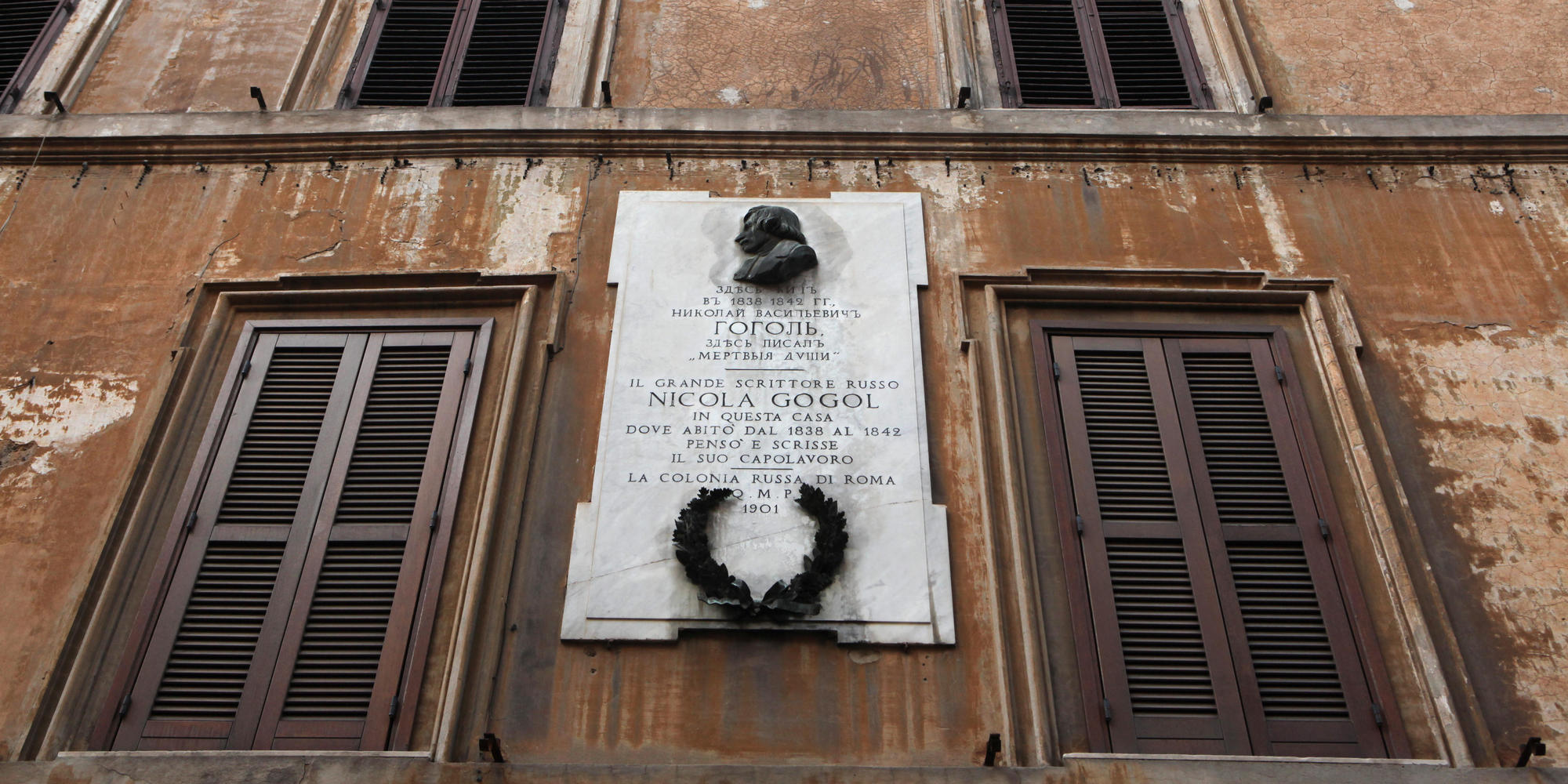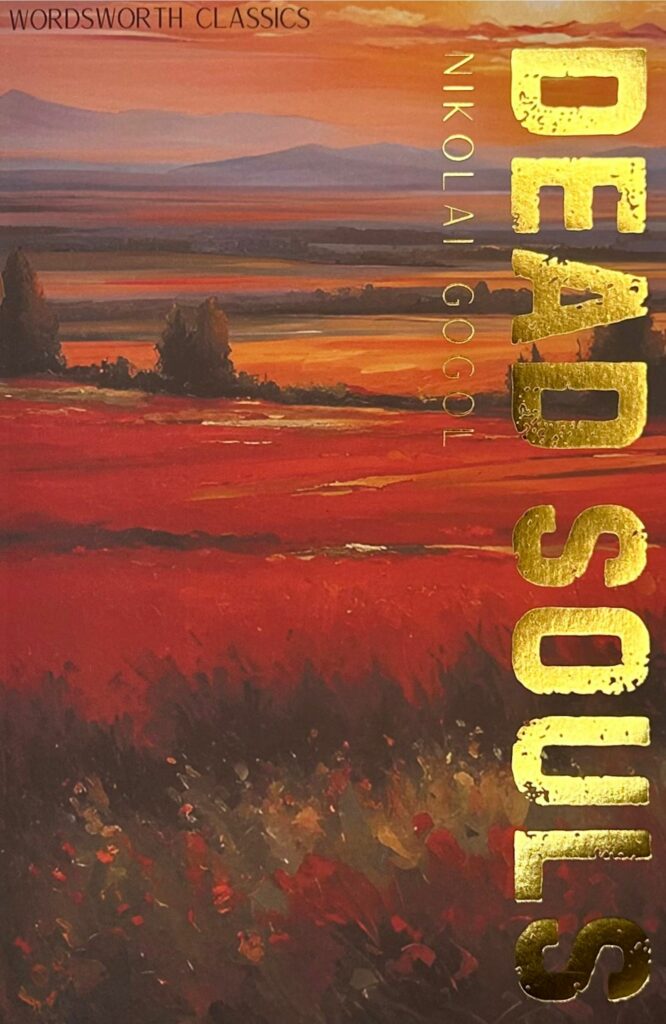
David Stuart Davies looks at Dead Souls
David Stuart Davies looks at Nikolai Gogol’s Dead Souls, a comic masterpiece.
‘Gogol was a strange creature, but then genius is always strange.’
Vladimir Nabokov
Nikolai Gogol (1809 -1852) was a Russian playwright and author. His life and character were as dark and strangely comic as his writings. He was described as a weedy little fellow with a tapir-like nose who was known at school as the ‘mysterious dwarf.’ His behaviour and attitude to life were eccentric. He disliked making love to women, and avoided his mother to the point of forging foreign postage stamps on his letters to make her believe he was living abroad. He was morbidly dependent on his friends’ company. ‘Forget your wretched teeth,’ he wrote to a friend who wanted to go to see a dentist. ‘The soul is better than teeth.’ These idiosyncratic capricious traits informed much of his writings.
Probably his most successful play was The Government Inspector, which is a satire on provincial bureaucracy, a comedy of errors that exposes small-town political corruption and human greed. The title role has appealed to comedians including such diverse performers as Danny Kaye and Tony Hancock. The play possesses the same comic tone as his novel Dead Souls (1846), which is admired as the greatest humorous work of literature in the Russian language. It was written in the same satirical genre as Pickwick Papers – indeed Gogol has Dickens’ talent for creating a series of grotesque portraits and wonderfully farcical comic set-pieces.
In the days of serfdom in Russia, serfs were referred to as ‘souls’ and a man’s wealth was measured by the number of ‘souls’ he possessed. The absurd hero of this book is the obese, lazy and cunning Chichikov. He makes it his business to purchase ‘dead souls’ – the papers relating to serfs who have died since the last census, but who remain on record and therefore still attract a tax demand. By pawning these souls he plans to raise enough money to buy himself an estate. His quest leads him all across the land and in the course of his travels he meets many odd and droll characters who reflect the mixed nature of Russian society at the time. Of course, Chichikov himself is also a dead soul, a man self-designed to be unremarkable, agreeable and acceptable, a smiling confidence-trickster whose plots are neither very clever nor very coherent.
The novel is filled with witty and perceptive observations which have a timeless quality to them such as: ‘However stupid a fool’s words may be, they are sometimes enough to confound an intelligent man.’
Gogol recollected how the idea of this book appealed to him:
‘…it enabled me to travel all over Russia with my hero… All I knew was that Chichikov’s activities would lead to a variety of characters and people as I went along and that my own desire for laughter would suggest comic episodes which I wanted to intersperse with more serious passages.’
In the first part of the novel, Gogol reveals an encompassing picture of the ailing social system in Russia after the unsuccessful French invasion. As in many of Gogol’s short stories, the social criticism of Dead Souls is communicated primarily through absurd and hilarious satire.
At the end of part one, Gogol leaves Chichikov, in a famous and much-quoted lyrical description, rushing out in his troika (a horse-drawn carriage) into the magical and endless space that is ‘Rus’, the spiritual home of Russians who all love fast driving. Part one was written not in Russia but abroad – mostly in Rome. Gogol knew it was a masterpiece and was always about to write part two. He had ambitions for it – it was to take the form of a biting treatise on crime, punishment and redemption.
The novel was published in 1842 but Gogol had envisaged this as the first section of an ambitious three-part major work: ‘All Russia will appear in it!’ he promised. But this was not to be. After the success of his early writings, Gogol left Russia and spent twelve years in self-imposed exile. He made a pilgrimage to the Holy Land, slowly developed a religious mania and fell into the hands of a fanatic Russian Orthodox priest who persuaded Gogol that art was sinful. Thus an artist who all his life had been dissatisfied with his own writings and had often destroyed his work in the interest of perfection now burned his manuscripts in the interests of God. In 1852, Gogol slipped into depression and delivered reams of his writings to the flames, including what was to be the sequel to Dead Souls.
Gogol’s religious mania grew and he became obsessed with the safety of his own soul and the burden of his sins. In the end, he starved himself to death, having lost the drive to live. He ended his life in agony.
Despite his tragic end, Dead Souls remains a great comic masterpiece – a satirical and splendidly exaggerated epic of life in the benighted provinces of Russia. Gogol hoped to show the world ‘the untold riches of the Russian soul’ in the novel, which he populated with a kaleidoscopic swarm of characters: rogues and scoundrels, landowners and serfs, conniving petty officials–all of them both utterly lifelike and alarmingly larger than life.
Because of the surreal element to the narrative, it has not been an easy one to translate for a dramatic interpretation. There was a stage version at the Moscow Arts Theatre in 1932 and a Russian opera in 1976. The novel was adapted for the screen in 1984 by Mikhail Schweitzer as a television miniseries. In 2006 the novel was dramatised for radio in two parts by the BBC and broadcast on Radio 4. It was played more for comic than satirical effect, the main comedy deriving from the performances of Mark Heap as Chichikov and the narrator, played by Michael Palin.
Worthy as these ventures might be, to capture the full richness of Gogol’s wide-ranging comic tapestry, it is best to read the book.
Image: Commemorative plaque to Russian writer Nikolai Gogol at Via Sistina in Rome, Italy. Gogol was living in this house when he wrote ‘Dead Souls’. Contributor: Azoor Photo Collection / Alamy Stock Photo
Books associated with this article
